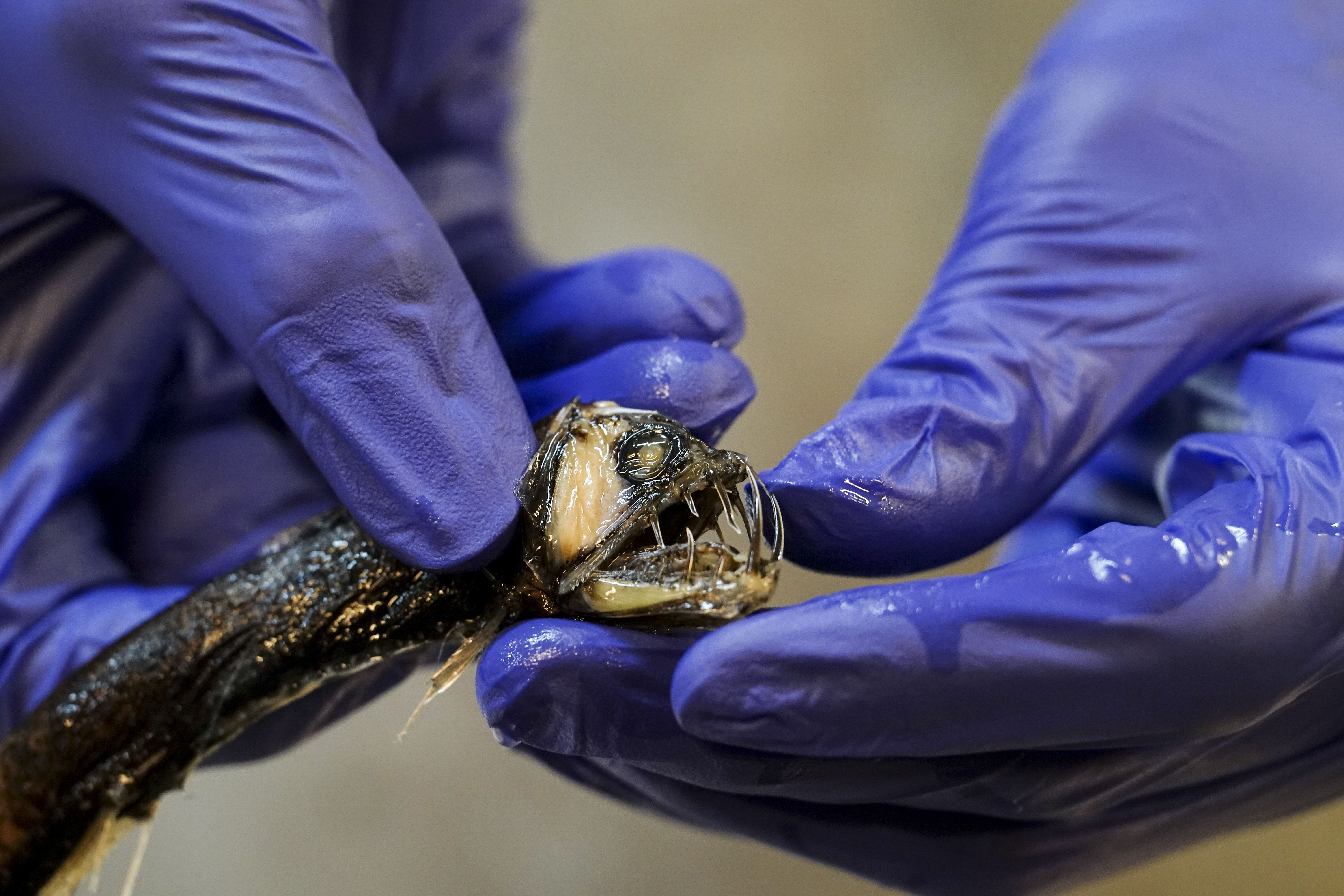MPs and peers urge Prime Minister to back moratorium on deep sea mining
A cross-party group says we know too little about the potential damage on ocean ecosystems to allow it to go ahead.

A cross-party group of 24 MPs and peers are calling on the Prime Minister to commit the UK to supporting a moratorium on deep sea mining.
The Environment APPG said in a letter to Rishi Sunak that we know too little about ocean ecosystems to allow deep sea mining to take place because it could have destructive consequences beyond our understanding.
Currently, no company is allowed to begin excavation, but many are exploring the ocean depths for minerals and precious metals that are used in renewable technology such as solar panels and wind turbines as well as for electronic devices like smart phones.
They are looking for deposits of manganese, nickel and cobalt that have built up over millions of years, which would then be scooped up in a potentially habitat-wrecking process.
If we want the transition to net zero to be sustainable, we need to ensure that our sourcing of minerals and metals is done in a responsible and sustainable way
Chile, France, Germany, Spain, New Zealand, Switzerland and Canada have already called for either a ban, moratorium or precautionary pause on deep sea mining, as have hundreds of scientists, and the Environment APPG wants the UK to join them.
Businesses such as Google, BMW, Samsung, Volkswagen and Volvo have committed to excluding deep sea minerals from their supply chains.
Conservative MP Chris Skidmore, who is chairman of the Environment APPG, said: “Disturbing our ocean floor with intensive mining could destroy ecosystems and marine life that has yet to have even been discovered.
“If we want the transition to net zero to be sustainable, we need to ensure that our sourcing of minerals and metals is done in a responsible and sustainable way.
“We are only just learning about the importance of the ocean both as a carbon sink and maintaining life on earth.”
A Natural History Museum study recently found 200 unique species living in an area of particular interest to ocean miners in the Pacific, known as the Clarion-Clipperton zone.
Researchers said around 90% of the species there are still unknown and they predict there could be as many as 6,000-8,000 yet to be described.
The letter’s signatories, which include Lord Randall of Uxbridge, Lord Teverson, Caroline Lucas and Rebecca Long-Bailey, said the mining industry is pushing hard to begin operations and that a legal loophole known as the “two-year rule” could see it get the go-ahead this year.
The two-year rule refers to a treaty provision triggered by the Pacific island nation of Nauru, which obliged the International Seabed Authority, the regulator, to finalise and adopt regulations on deep sea mining within 24 months, which expired earlier this week.
The UK, along with almost every other country on Earth, agreed to a new UN high seas treaty in March which aims to extend the amount of protected areas in the oceans to shield it from over-exploitation by activities such as mining, fishing and shipping.
MPs and peers said a moratorium would follow the UK’s precautionary approach to environmental harm, part of the Environment Act, which should be considered when a particular policy such as deep sea mining “could cause serious or irreversible damage to the environment”.
Mr Skidmore said: “We are at a moment – a fork in the road – where if we progress with deep sea mining, we will never be able to return.
“Our reserves of minerals and metals do not depend on harvesting the ocean floor.
“So soon after signing an international treaty on protecting the oceans, deep sea mining would be a step backwards and undermine the progress that has been made.”
Bookmark popover
Removed from bookmarks